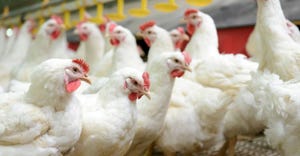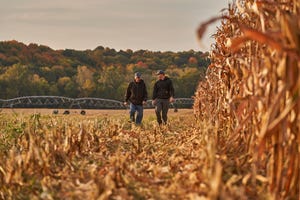Continuing resolution keeps government running until Dec. 9, and Senate sends livestock market bill to President.

After weeks of political wrangling, the Senate and House of Representatives acted on a continuing resolution (CR) to enable government operations to continue at largely fiscal 2016 levels until Dec. 9, 2016.
When Congress acts on a CR, congressional leaders will usually minimize the inclusion of any extraneous provisions. The debate this time around centered on the inclusion of funding to combat Zika virus, respond to flooding in Louisiana and fix the water infrastructure system in Flint, Mich., following the lead contamination disaster. The question of how to address funding for Flint ended up being one of the last sticking points preventing completion of the CR.
Following a failed procedural vote in the Senate on Tuesday, House leadership agreed to allow consideration of an amendment providing funding for Flint as part of the Water Resources Development Act (WRDA). With that step taken, the CR was able to advance through both the Senate and the House on Wednesday, ultimately meaning that the government will not shut down come Oct. 1.
As of Monday, the U.S. Department of Agriculture's Farm Service Agency (FSA) had a backlog of 916 direct and guaranteed operating loans worth nearly $119 million. That number changes daily as new applications are accepted. Estimates are that FSA will be entering fiscal 2017 with a nearly $215 million backlog in farm operating loans from fiscal 2016, and no new borrowers can be considered until all previously approved borrowers from fiscal 2016 are funded.
Earlier this month, USDA proposed and congressional agriculture appropriators approved reallocating $185 million in funding to address a backlog of direct and guaranteed farm loan applications. These funds took care of roughly half of FSA's existing backlog (covering nearly 2,000 approved loan applicants), but the other half of applicants remain in limbo as the end of fiscal 2016 approaches.
In order to ensure that FSA has the funds necessary to meet the backlog from fiscal 2016 and enough for new operating loans between Oct. 1 and Dec. 9, when the CR expires, FSA will need the White House Office of Management & Budget to provide it with sufficient funds to meet loan demand, explained Ferd Hoefner, policy director at the National Sustainable Agriculture Coalition.
“On the bigger issue of whether sufficient funding will be added to the final appropriations bill for 2017 — the so-called omnibus bill expected to pass by or before Dec. 9 — we are optimistic that additional funding will be provided and will continue to press for that outcome,” he added.
With action on the CR now completed, this sets up the need for action on another CR or an omnibus appropriations bill during the lame-duck session of Congress following the election.
WRDA passed
The House passed its 2016 WRDA by a vote of 399-25. The Senate passed its version of WRDA on Sept. 15. The House and the Senate now need to meet via conference to reconcile the differences between the two versions. (To read more about WRDA passage, click here.)
Livestock reporting rule
Also on the list of things Congress actually got done is full Senate passage of legislation to ensure protections for livestock producers who use 21st-century technology for livestock sales.
On Thursday, the Senate sent the Clarification of Treatment of Electronic Sales of Livestock Act to the White House. The bill would amend the Packers & Stockyards Act of 1921 to ensure that the law's protections are extended to online or video livestock auctions. The bill would also ensure modern electronic banking options. The Senate approved H.R. 5883, the companion bill to S. 3350, by unanimous consent.
H.R. 5883, introduced by Rep. David Rouzer (R., N.C.), will clarify that Packers & Stockyards Act provisions apply to online or video auctions, just as they do for fixed-facility livestock market transactions. The legislation would also authorize modern electronic payment methods, including credit and debit cards or the Automated Clearing House payments system. The law currently authorizes only the use of checks or wire transfers to settle livestock sales.
The bipartisan legislation is supported by the American Farm Bureau Federation, American Sheep Industry Assn., Livestock Marketing Assn., National Cattlemen's Beef Assn., National Farmers Union, National Livestock Producers Assn. and United States Cattlemen's Assn.
About the Author(s)
You May Also Like





